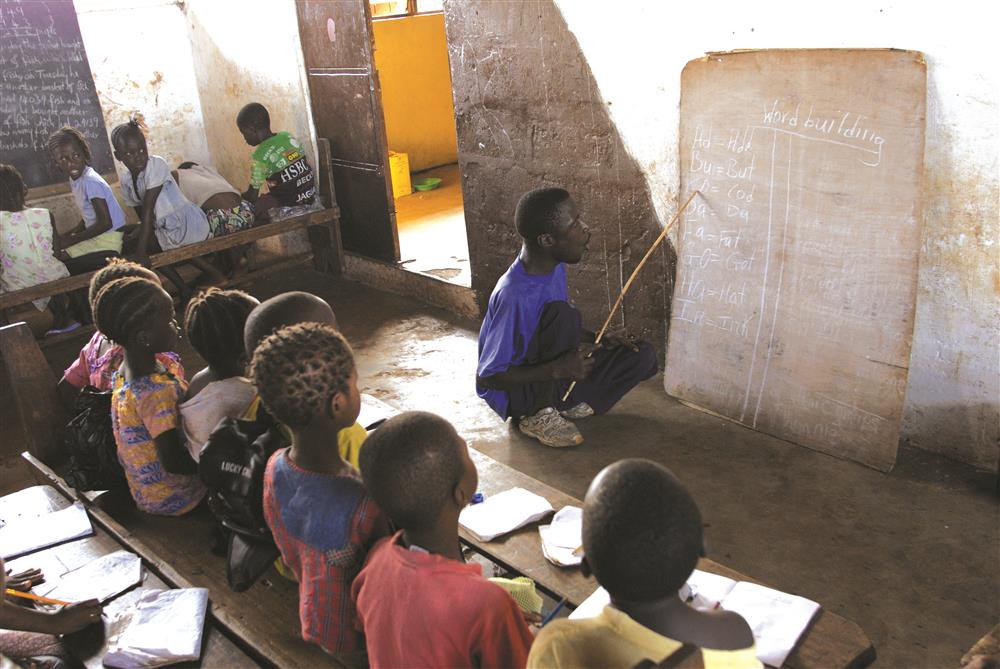Mandatory minimum standards for education in emergencies
- Solution
- INEE Minimum Standards for Education: Preparedness, Response, Recovery and INEE Toolkit of the Inter-Agency Network for Education in Emergencies (INEE); implemented by Ministries of Education, policy-makers, teachers, humanitarian agencies and humanitarian workers worldwide.
- Organization
- INEE - International Network for Education in Emergencies
- Country of Implementation
- United States of America
- Region
- North America
- First published
- 31.01.2016

Solution details
People
“The INEE MS have helped institutions raise the level of responsiveness to emergencies; for example, they have become a structural component of UNRWA’s education response in emergencies.” Alberto Biancoli, United Nations Relief and Works Agency for Palestine Refugees in the Near East (UNRWA)
The Inter-Agency Network for Education in Emergencies (INEE) is an open, global network composed of more than 11,500 individuals and 130 organizations working to promote education in crisis contexts. In 2003–2004, INEE facilitated a consultative process that engaged 2,250 national authorities, practitioners, and policy-makers from over 50 countries in the development of the original INEE Minimum Standards for Education. Building upon this experience, INEE conducted a similarly consultative update process in 2009–2010, in which 1,300 representatives from 52 countries participated. The INEE MS were founded on the UN Convention on the Rights of the Child and the Dakar 2000 Education for All goals. The standards development and implementation process has received financial support from international organizations and donors, and hundreds of additional organizations have made in-kind contributions. The INEE Minimum Standards for Education are the global consensus for good practice in meeting the educational rights and needs of people affected by disasters and crises. The accompanying INEE Toolkit contains a variety of practical, field-friendly tools – including a Pocket Guide to Inclusive Education as well as a Pocket Guide to Supporting Learners with Disabilities – to guide educationalists, humanitarian workers, and government officials to put the INEE Minimum Standards (MS) into practice.
Problems Targeted
Education during emergency situations provides physical, psychosocial, and cognitive protection that can sustain lives. Thanks to the INEE Minimum Standards for Education, which articulate the minimum level of educational quality and access, including for all children with disabilities, the provision of education in emergencies became mandatory worldwide in 2010.
Solution, Innovation and Impact
The INEE Minimum Standards for Education are an international non legally-binding policy that is aimed at anyone working with education services in emergencies – whether through government, non-governmental, or international agencies. INEE’s Toolkit includes quick reference pocket guides that help practitioners to make sure that education in emergencies is accessible and inclusive. The 2009 INEE Pocket Guide on Inclusive Education first outlines principles for an inclusive approach, provides advice for actions at key stages of an emergency, and also looks at the issue of resistance to inclusion. The 2010 INEE Pocket Guide to Supporting Learners with Disabilities outlines constraints or concerns that teachers might have, and offers practical ways in which teachers working in crisis or emergency settings can include and support children and young people with disabilities. Both pocket guides are accompanied by implementation tools that include, for instance, a thematic issue brief, a poster, a list of relevant teaching resources, a Thematic Guide, etc. Universal tool for Inclusive Education The INEE MS are the first and only global tools that articulate the minimum level of educational quality and access in emergencies through to recovery. They also express a commitment that education services shall be inclusive. Result of a large consensus The consultative process involved 3,500 individuals to ensure that the INEE MS represent the rights, lessons learned, and collective thinking of the global community. They support education in emergencies as a humanitarian response as well as an academic discipline._x000D_ Broad diffusion The INEE Toolkit is available in a variety of languages (29) and formats, including to those without Internet access. The INEE MS and Toolkit are implemented by humanitarian agencies and organizations all around the world. According to a 2012 report, half of the 703 respondents had been trained on the INEE MS and used them to prioritize education in emergencies. Donors strengthened their emphasis on education quality outcomes, including by requiring funding recipients to adhere to the INEE MS. Some donors, including Norway and Finland, explicitly commit to the INEE MS in their humanitarian policies.
Funding, Outlook and Transferability
The INEE MS have been referenced in global frameworks, including the UN 2010 General Assembly Resolution on the Right to Education in Emergency Situations, which made the provision of education in all emergencies mandatory. Institutionalization and application of the INEE MS within an organization’s operation can be done with little to no cost. The standards have been contextualized in over 10 countries, and the process is currently ongoing in several additional countries.
Media
Related information
- Connections
- 2
-
Organization
- People